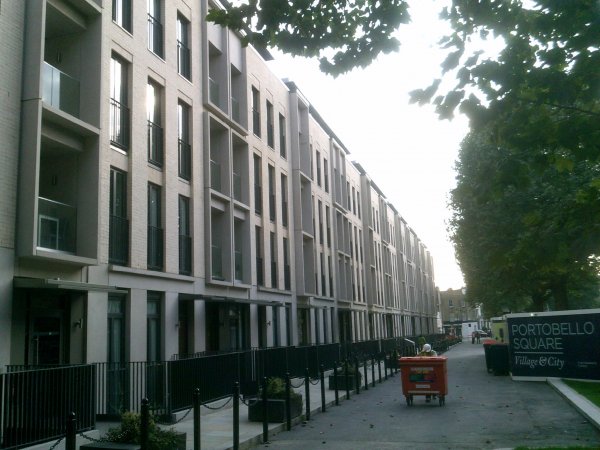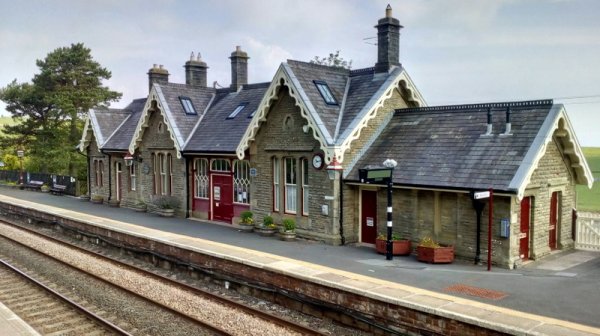Nov 3rd 2020, 12:55
Blog 3rd November 2020
In this blog I consider the government’s planning white paper ‘Planning for the Future’ and the response to it by the housing and planning sectors; public transport in rural areas; local housing companies and development; and webinars.
The government’s consultation on their white paper ‘Planning for the Future’ has closed with housing and planning groups saying that the proposals to replace the Community Infrastructure Levy and Section 106 with a single Infrastructure Levy lack detail.

New affordable and market housing built by Catalyst Housing Association in Kensington
The Chartered Institute of Housing opposes the proposal and said that:
“Sufficient evidence is not presented that the new Infrastructure Levy will not result in the loss of deliver of much-needed affordable homes… Greater modelling and clarity on how this could work in practice are needed.”
The Chartered Institute of Housing also suggested that affordable housing will:
“In essence be competing with other resource-hungry infrastructure needs such as transport”.
And that the new system:
“Could potentially be as complex as the current Section 106 and Community Infrastructure Levy systems, with as much potential for challenges on legal and valuation grounds”.
The Royal Town Planning Institute said that:
“We are concerned that the Infrastructure Levy as proposed could raise less funding for affordable housing… (It could) perpetuate the likelihood of trade-offs between infrastructure and affordable housing… A single national Infrastructure Levy could not address the significant variations in market values across the country. This could undermine the levelling-up agenda unless mechanisms were in place to redistribute income, which would complicate the process.”
I have written a briefing paper about the planning white paper and its implications for housing. I conclude that the government’s proposals would reduce the supply of social and affordable housing and would probably not increase the supply of market housing. To view or download a copy, please click here.
Many rural areas suffer from a lack of public transport that is often exacerbated by poor integration between the road and rail services that exist. A good example is provided by Kirkby Stephen in Cumbria.

Kirkby Stephen Railway Station in Cumbria
Kirkby Stephen Railway Station is the only station in the Upper Eden area and offers connections northwards to Carlisle and southwards to Leeds. It is important both to connect local people to other places and to encourage tourists to visit the area.
The Coronavirus pandemic has had a devastating effect on the tourism and hospitality industries on which the economies of Kirkby Stephen and the Upper Eden are dependent. The railway will be important to Kirkby Stephen’s economic recovery from coronavirus.
But the station is almost two miles from Kirkby Stephen town centre and there is neither a regular bus service nor a good availability of taxis. It is estimated that before the pandemic, 28,000 people used Kirkby Stephen station each year compared with 55,000 who used the more accessible station at Appleby. This suggests that better connections could double the use of the station by residents and visits to the town by tourists.
The Friends of the Settle-Carlisle railway reported in January that:
“The line fails to fulfil its true potential for communities and tourism due to the lack of integrated travel both to and from the intermediate stations along the line… (Kirkby Stephen) station has suffered badly through lack of ease of access from the town… There is no bus service providing a viable connection between the town and the station so for those without access to a car the only options are to either walk up the steep hill on an unlit footpath or book a taxi.”
And they recommended that:
“Kirkby Stephen station should be developed as a key transport hub for the area.”
Unfortunately, bus operators do not see a commercial service between the station and the town centre as financially viable; while the Upper Eden Neighbourhood Plan, prepared by the Town Council among others, strangely makes no mention of the railway station.
One option would be for the County Council (or other public agency) to support a bus service as part of a strategy to restart the local economy after coronavirus, possibly funded by the Eden Local Committee. Other options might be to form a consortium of support that could include the Town Council that could raise money as special expenses; to start a dial a ride scheme; or to make it a requirement of the rail franchise for the railway company to provide a bus service between the station and the town.
We certainly need to start thinking ‘outside the box’ if we are to find solutions to the problems of places such as Kirkby Stephen and the Upper Eden.
We have just launched a new webinar on ‘Local Housing Companies and Development’ that will be held on 3rd November 2020.
Local housing companies are independent arms-length commercial organisations wholly or partly owned by councils. They can develop, buy and manage properties within and outside of a local authority area. The homes they provide sit outside of the local government housing financing system and are not subject to the Housing Act and most of the social / affordable housing regulations. Over the past few years the number of companies has increased among councils across the whole of England. It is estimated that there are over 150 local authorities that have set up local authority housing companies However, they are not the only housing delivery vehicles that are available to Councils and this is still an emerging area in terms of policy and best practice.
This webinar will explain and examine why and how local authorities are setting up local housing companies and other delivery vehicles.
For further information or to make a booking, please click here.
We will be holding other webinars from November 2020 to January 2021 including:
For further information or to make a booking, please click here.